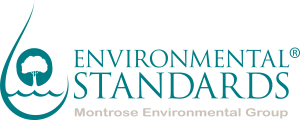 On May 29, 2014, the US EPA Office of the Inspector General (OIG) released a report stating the EPA lacks a due diligence process for potential fraudulent environmental data. The OIG report, “EPA Has Not Implemented Adequate Management Procedures to Address Potential Fraudulent Environmental Data,” summarizes that the agency has three policies and procedures that address how to respond to instances of fraudulent data, but they are all out of date or unimplemented.
On May 29, 2014, the US EPA Office of the Inspector General (OIG) released a report stating the EPA lacks a due diligence process for potential fraudulent environmental data. The OIG report, “EPA Has Not Implemented Adequate Management Procedures to Address Potential Fraudulent Environmental Data,” summarizes that the agency has three policies and procedures that address how to respond to instances of fraudulent data, but they are all out of date or unimplemented.
The EPA defines laboratory fraud as “the deliberate falsification of analytical and quality assurance results.” A number of laboratory practices may constitute fraud, including:
- Fabricating data.
- Intentionally calibrating equipment using other than accepted procedures.
- Modifying samples to alter characteristics.
- Manipulating analytical results.
- Substituting samples, files or data.
From an environmental and human health protection perspective, the most serious consequence of laboratory fraud is the possibility that false negatives were reported. A false negative occurs when a laboratory reports that certain potentially hazardous compounds were not present when they were present.
What the report is reviewing in part is:
Throughout this report we refer to the laboratory fraud due diligence process. For the purposes of this evaluation, we define a laboratory fraud due diligence process as including all of the following elements: (1) the communication of laboratory fraud information between enforcement and program offices and data users, (2) the review and/or assessment of fraudulent laboratory data to determine its impact on human health and the environment, and (3) the review and/or amendment of past environmental decisions predicated on fraudulent laboratory data.
If you have not seen the report, you may find it helpful to understand future actions for which EPA has established planned completion dates.
External audits of commercial and in-house laboratories provide an opportunity for companies to add checks on whether “questionable practices” are occurring and to address internal follow-up actions if “questionable practices” are uncovered during an audit. Environmental Standards, Inc.’s team of auditors has experience with the data mining software that is mentioned in the report and also in working with labs to identify specific data sets impacted.
This may be of particular interest if your company uses external commercial laboratories supporting remedial and/or compliance decisions. Environmental Standards has a very cost-effective and highly experienced environmental lab auditing practice, often allowing companies to have audits performed at much lower overall total costs than can be done internally by use of cost sharing with other companies using the same laboratory.
Please contact Rock Vitale, CEAC for more information about laboratory audits performed by Environmental Standards, Inc.
About the Author
Rock J. Vitale, CEAC, is the Technical Director of Chemistry/Principal and a founding partner of Environmental Standards, Inc. Rock has 30 years of analytical quality assurance experience, performing hundreds of rigorous laboratory audits. When he’s not traveling for business, Rock spends his free time fishing, hunting, and hiking.
